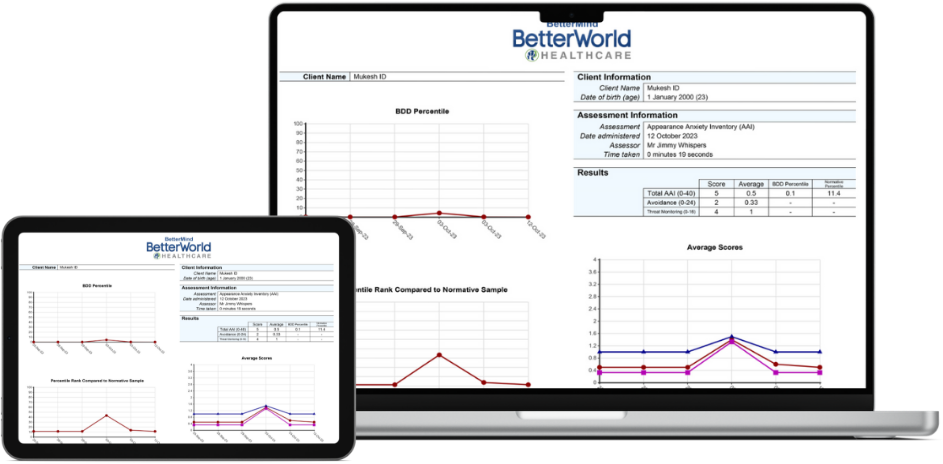Clinical Outcomes in Routine Evaluation (CORE-OM)
Assessments
Description
The CORE Outcome Measure (CORE-OM) was conceived as a self-report measure of psychological distress designed to be administered before and after therapy. The client is asked to respond to 34 questions about how they have been feeling over the last week, using a 5-point scale ranging from ‘not at all’ to ‘most or all of the time’. The 34 items of the measure cover four dimensions:
– Subjective well-being
– Problems/symptoms
– Life functioning
– Risk/harm
The questionnaire is repeated after the last session of treatment; comparison of the pre-and post-therapy scores offers a measure of ‘outcome’ (i.e. whether or not the client’s level of distress has changed, and by how much).
Validity
Since its development the CORE-OM has been validated with samples from the general population, NHS primary and secondary care, and in older adults.
Clinical normative data came from 21 sites from England, predominately within the NHS. The clinical population comprising users waiting for or receiving a wide variety of psychological interventions in a wide variety of settings (total n = 890). This normative data is reported in the CORE SYSTEM USER MANUAL and is used to compute percentile ranks.
Interpretation
Higher total raw scores total (range 0-136) represent poorer overall functioning and scores are also presented as a the mean score (from 0 – 4) which represents the clients average answer. In addition, scores are presented as a percentile compared to a clinical normative sample, where a percentile of 50 represents the average psychological distress of someone seeking psychological intervention.
There are 4 subscales:
– Subjective well-being (items 4, 14, 17, 31)
– Problems/symptoms (items 2, 5, 8, 11, 13, 15, 18, 20, 23, 27, 28, 30)
– Life functioning (1, 3, 7, 12, 10, 19, 21, 25, 26, 29, 32, 33)
– Risk/harm (9, 6, 16, 22, 24, 34)
Developer
Evans C, Connell J, Barkham M, Margison F, McGrath G, Mellor-Clark J, Audin K. Towards a standardised brief outcome measure: psychometric properties and utility of the CORE-OM. Br J Psychiatry. 2002 Jan;180:51-60.
Try it and see how BetterMind can enhance your practice

Support
Frequently Asked Questions
You’ve got questions, we’ve got answers. Below you can find answers to some of the most frequently asked questions. If you can’t find the answer you’re looking for, please feel free to reach out to us at info@betterworldhealthcare.com.
I can’t open test results within the Web Browser
Assessment result PDFs are opened in a new tab within the web browser. If you click the results but they do not open, your browser will be blocking the popup. To resolve this, after you have pressed the test result, look out for an alert at the top of your browser notifying you that a pop-up has been blocked, then click "Allow".
I have forgotten my password. How can I reset it?
If you have forgotten your password please press “forgot password” within the app, or on the Web Browser App login page (https://app.bettermind-app.com/login). You will receive a new temporary password via email.
Can a Practitioner access BetterMind from their Smartphone?
No, A Client /Patient can answer assessment questions on a smartphone but the Practitioners/ Users can't administer BetterMind using a Smartphone. A computer, laptop or tablet will have to be used.


